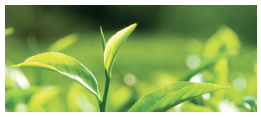A total of 60 patients with DSM-IV schizophrenia or schizoaffective disorder participated in an 8-week, double-blind, randomized, placebo-controlled study: 400 mg/d of L-theanine was added to ongoing antipsychotic treatment from Feb 2006 until Oct 2008. Outcome measures were the Positive and Negative Syndrome Scale (PANSS), the Hamilton Anxiety Rating Scale (HARS), the Cambridge Neuropsychological Test Automated Battery (CANTAB) for neurocognitive functioning, and additional measures of general functioning, side effects, and quality of life. 40 of the 60 patients completed the study protocol. Compared to placebo, L-theanine augmentation was associated with reduction of anxiety (P = .015; measured by the HARS scale) and positive (P = .009) and general psychopathology (P < .001) scores (measured by the PANSS 3-dimensional model). According to the 5-dimension model of psychopathology, L-theanine produced significant reductions on PANSS positive (P = .004) and activation factor (P = .006) scores compared to placebo. PANSS negative and CANTAB task scores, general functioning, side effect, and quality of life measures were not affected. L-theanine augmentation of antipsychotic therapy can ameliorate positive, activation, and anxiety symptoms in schizophrenia and schizoaffective disorder patients. J Clin Psychiatry. 2011 Jan;72(1):34-42. PMID: 21208586.









